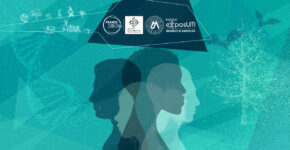UM2030 – IDEAS: integration and development of IDEX and ISITE
The France 2030 UM2030-IDeES program, which stands for “Integration and Development of IdEx and ISITE,” aims to strengthen the central role played by the University of Montpellier by bringing together all partners in the I-SITE consortium in a shared approach.
Funded by the French National Research Agency, IDéES, led by François Pierrot, Vice President of International Relations, proposes to develop large-scale actions responding to the three major challenges of "Feeding-Caring-Protecting" in three areas:
- Strategic international partnerships
- Data science for all sciences
- Innovation Campus
The program components
International and strategic partnerships
The Strategic International Partnerships component aims to increase the site's international visibility through international initiatives that respond to the priorities of the UM and its partners, as well as to the challenges of Feeding, Caring, and Protecting.
Its ambition is to strengthen the Montpellier site's capacity to serve as a gateway to/from abroad, with a focus on Southern countries, and to facilitate synergy among the members of the I-SITE consortium and the complementarity of their tools and platforms internationally.
Founding principles
- Strengthen international relations around the strengths of the Montpellier site.
- Build alliances and develop action programs.
Three key international thematic initiatives (Key World Initiatives) are being developed to stimulate exchanges and collaborations in a spirit of open science:
Data science for all sciences
Subprogram leader: Anne Laurent, Vice President for Open Science and Data at Research
The "Data Science for All Sciences"component aims to transform practices and guide all stakeholders toward data science by building an effective and sustainable environment.
The activities of this project are led bythe Montpellier Institute of Data Science (ISDM) and are organized into sub-areas in order to promote best practices in data management and exploitation: Support – Training – Data services. A cross-cutting focuson activities andevents is carried out as part of the AI Market.
Innovation Campus
Subprogram leader: Philippe Combette, Vice President in charge of partnerships and innovation
The "Campus of Innovation" component, which is part of the Montpellier University Innovation Hub (PUI de Montpellier), offers a comprehensive innovation pipeline and strengthens the University's ability to raise funds from the private sector.
The general framework of the Innovation Campus component is part of the innovation strategy for the site led by the Montpellier University Hospital (PUI), a structuring project led by the University of Montpellier and implemented in close collaboration with 13 institutional partners.
This project was conceived in early 2022 in line with the MUSE Excellence Initiative, which is now ongoing, and was one of five pilot sites selected by the MESR at the national level. This strategy thus brings together several areas of focus, particularly that related to the creation of start-ups.
The Innovation Campus component of the UM2030 project aims in particular to strengthen the entrepreneurshipsupport system through the creation of a dedicated team within the INITIUM Incubatorand the creation of a "PEPITE DeepTech incubation program" at the PUI level. It also provides funding for innovative projects selected as winners of the Montpellier Innovation Booster Program (BIM).




